eat what you kill
description: a phrase often used in finance and law firms to describe a compensation system where employees earn from their own efforts
23 results
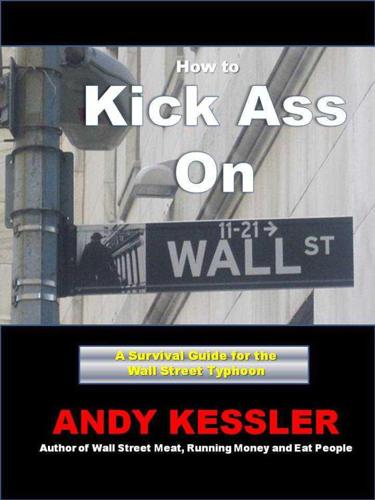
How to Kick Ass on Wall Street
by
Andy Kessler
Published 4 Jun 2012
Don’t make up an offer. They are easy to check. Finally, when you’ve been at it long enough and really are an expert and a focused part of the business and a money maker for the firm, the real way to get paid is to take your talents to the buyside - to an investment fund or even to a hedge fund. There you eat what you kill. You make outsize returns in any given year and you’ll get paid for it. There is an even better reason to eventually move to the buyside. Then, finally, you can say ‘asshole’ before you hang up the phone. Read, Read, Read Warren Buffettt’s right hand man Charlie Munger said this at Berkshire Hathaway’s 2003 annual meeting: I have said that in my whole life, I have known no wise person, over a broad subject matter who didn’t read all the time – none, zero.
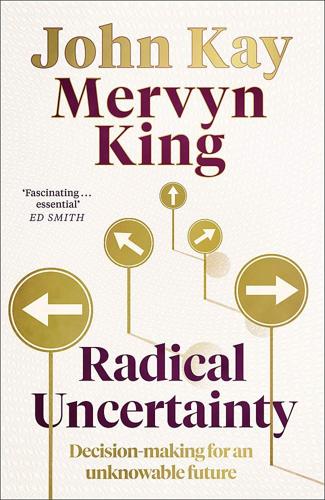
Radical Uncertainty: Decision-Making for an Unknowable Future
by
Mervyn King
and
John Kay
Published 5 Mar 2020
Piece rates on automobile assembly lines were abandoned because they led workers to pursue quantity at the expense of quality – Toyota showed that superior products could be manufactured by encouraging groups of workers to take pride in the reliability of their output and to ‘stop the line’ if they believed that goal was in jeopardy. 3 Financial economics must take much of the responsibility for spreading the idea that senior executives could be treated as actors whose role was to respond to the incentives they were given tailored to maximise shareholder value. The results have seriously distorted corporate behaviour and led to an explosion of executive remuneration which has exacerbated social divisions. The introduction of ‘eat what you kill’ policies in law and accountancy – the primary driver of personal remuneration is your own revenue generation rather than the profitability of the firm – has eroded the professional ethos which historically characterised these activities. In the years before 2008, banks represented the closest approximation in the business world to organisations which treated both senior management and lowly employees as people whose interests were to be aligned with those of the company solely through incentive schemes.
…
225 Korean War, 292 , 294 Korzybski, Alfred, 391 Krugman, Paul, 93 Kuhn, Thomas, 285 !Kung Bushmen, 216 , 217 , 325 Lampert, Eddie, 287–9 , 292 Lampson, Butler, 28 Landon, Alf, 240 , 390 Laplace, Pierre-Simon, 70 , 199 Lascaux cave paintings, 216 law: civil law and common law jurisdictions, 205–6 , 213–14 ; ‘eat what you kill’ policies, 409 ; legal reasoning, 194–5 , 196–8 , 205–7 , 210–14 , 410 , 415 , 416 ; presumption of innocence, 210 ; and probabilistic reasoning, 196 , 197 , 198–203 , 206–7 , 210–12 , 214 ; ‘the prosecutor’s fallacy’, 201–2 , 203 ; ‘reasonable doubt’ concept, 198 , 201 , 205–6 , 211–12 ; and ‘rodeo problem’, 206–7 ; search for ‘best explanation’, 211–14 ; and statistical discrimination, 207–8 Lawson, Nigel, 291 Leamer, Edward, 100 Leamon, Nathan, The Test , 268 Lee, General Robert E., 188 Leeson, Nick, 411 Lehman Brothers, failure of (2008), 5 , 36 , 158–9 , 267 , 410–11 , 412 Leonardo da Vinci, 219 , 421 , 428 LeRoy, Stephen, 74 , 78 Let’s Make a Deal (US quiz show), 62–3 , 65 , 69 Lewis, Michael, 135 , 215 ; The Undoing Project , 121 , 393–4 Libet, Benjamin, 171 LIBOR scandal, 192 Libratus (poker-playing computer), 263 life expectancy, 43 , 56 , 57 , 161 , 232–3 Lincoln, Abraham, 266 , 269 , 290 Literary Digest , 240 , 390 Livy (Roman historian), 54 , 186 , 187 Lloyds Bank, 325 Lloyd’s of London, 55–6 , 322–4 , 325 , 326 Loch Ness monster, 325 , 326 Loewenstein, George, 128–9 , 135 , 310 London School of Economics, 339 , 382–3 Long Term Capital Management, 153 , 309 Louis XIV, King of France, 411 Lucas, Robert, 36 , 92 , 93 , 338–9 , 341 , 345 , 346 , 348 , 354 Maa-speaking people of East Africa, 160–1 , 189 MacArthur, Douglas, 292–3 , 420 Macartney, Lord, 419 Mackay, Charles, Extraordinary Popular Delusions and the Madness of Crowds , 315 Malthus, Thomas, 253 , 358–61 , 362–3 Mandelbrot, Benoit, 238 Manhattan grid plan, 424–5 Manville, Brook, 374 Mao Tse-tung, 4–5 , 292 Markowitz, Harry, 307 , 308 , 309–10 , 318 , 320 , 332 , 333 , 366 Márquez, Gabriel García, 226 Marshall, Alfred, 276 , 381 , 382 Marshall, Barry, 284 , 306 Marshall, George, 292 Marxism, 220 Mary Celeste mystery (1872), 33–4 , 44 Mary Poppins (film, 1964), 306 mathematical reasoning, xiv , 12 , 19 , 42–3 , 47 , 53–4 , 93 , 343 , 401 , 404–5 ; appropriate use of, 383 ; fixed point theorems, 254 ; fractal geometry, 238–9 ; ‘grand auction’ of Arrow and Debreu, 343–5 ; and historical narratives, 188 ; small world applications of, 175–6 Matsushita, Konosuke, 410 Mauss, Marcel, The Gift (1925), 190–1 Max Planck Institute, Berlin, 152 maximising behaviour, xiv , 258 , 381–2 ; ‘ambiguity aversion’ concept, 135 ; and evolutionary rationality, 157 , 158 , 166–7 ; and greed, 127–8 , 409 ; limits to, xiv–xv , 41–4 , 152 , 171–2 , 310 , 345 , 382 , 400–1 , 435–44 ; maximising expected utility, 108 , 111–14 , 115–18 , 129–30 , 400 ; and utilitarian theory, 110–11 Maxwell, Robert, 312 , 313 May, Robert, 375 Maynard, John, 156 McHugh, Dodd, 425 McLaren racing team, 391 McNamara, Robert, 281–2 , 298–300 McRaven, Admiral William, 298 Meadow, Professor Sir Roy, 197–8 , 200 , 201 medicine, 22 , 32 , 39–40 , 88–9 , 383 , 384 , 387 ; computer technologies, 185–6 ; doctors’ decision-making, 184–6 , 194 , 398–9 ; HIV infections, 375–6 ; infectious diseases, 282–3 , 285 ; puerperal fever, 282–3 , 306 ; ‘randomised controlled trials’ (RCTs), 243–5 ; screening for cancer, 66–7 , 206 ; stomach ulcers, 284 , 306 ; twentieth century improvements, 57 ; and uncertainty, 44–5 mercantilism, 249 Mercier, Hugo, 162 , 272 , 415 Méré, Chevalier de, 53 , 59 , 60 , 61 Merton, Robert C., 309 Merton, Robert K., 35–6 , 309 MESSENGER (NASA probe), 18–19 , 26 , 35 , 218 , 394 meteorology, 23 , 43 , 101–2 , 406 Michelangelo, 421 , 428 Michelson, Albert, 430 Microsoft, 29 , 30–1 migration, 369–70 , 372 ; European to USA, 427 military campaigns and strategy, 3–4 , 24–6 , 292–3 , 294–5 , 298–300 , 412–13 , 433 military-industrial complex, 294 Mill, John Stuart, 110 , 429–30 ; System of Logic (1843), 70 Miller, Arthur, Death of a Salesman , 220 Ming emperors, 419 Mintzberg, Henry, 296 , 410 Mirowski, Philip, 388 MMR triple vaccine, 394 mobile phones, 30–1 , 38–9 , 257 , 344 models: appropriate use of, 376–7 ; of Canadian fisheries, 368–9 , 370 , 371–2 , 423 ; consulting firms, 180 , 182–3 , 275–6 , 365 , 370–1 , 405 ; EU migration models, 370 , 372 ; invented numbers in, 320 , 363–4 , 365 , 371 , 373 , 404 , 405 , 423 ; maps as not the territory, 391–4 ; microeconomic research, 382 , 392 ; misuse/abuse of, 312–13 , 320 , 368–76 , 405 ; at NASA, 373–4 , 391–2 ; policy-based evidence, 370–1 , 373–4 , 405 , 412–13 ; and public consultation, 372 ; reproduction of large/real-world, 390–2 ; role of incentives/targets, 409 ; stationarity as assumed, 333 , 339 , 340–1 , 349 , 350 , 366–7 , 371–2 ; as tools, 384–6 ; transport modelling, 363–5 , 370 , 371 , 372 , 396 , 404 , 407 ; WebTAG, 363–4 , 365 , 371 , 404 , 407 ; WHO HIV model, 375–6 ; see also economic models; small world models Moivre, Abraham de, 57–8 , 233 money supply, 96 Moneyball (film, 2011), 273 MONIAC (Monetary National Income Analogue Computer) machine, 339 ‘Monte Carlo simulations’, 365 Montgomery, Bernard Law, 293 Moore, Dudley, 97 Morgenstern, Oskar, 111 , 133 , 435–7 Moses, Robert, 425 Mourinho, José, 265 Mrs White’s Chocolate House (St James’s), 55 Murray, Bill, 419 Musk, Elon, 128 , 130 , 307 Mussabini, Sam, 273 mutualisation: in insurance markets, 325–6 ; and !
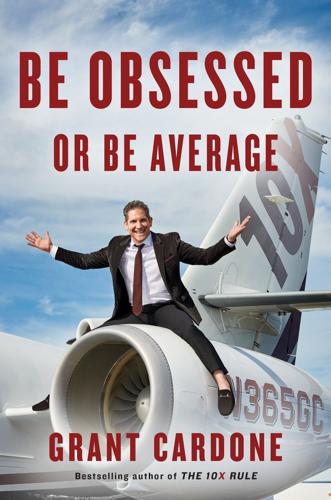
Be Obsessed or Be Average
by
Grant Cardone
Published 20 Sep 2016
#BeObsessed @GrantCardone The world thought I had been obsessed before? No—now I was obsessed. I was alive again. I was on fire again. I was 120 percent into my businesses, pushed by the threat of not surviving. I was back at the beginning and there was no sense of entitlement. Instead I was waking up every day with an “Eat what you kill” mentality. Seize all of the business; take no prisoners; be ethical but never fair; push, shove, and knock down walls if necessary. It was time to expand while others contracted. It got me busy doing what I had been doing when I started my first business: making myself known to people who didn’t know me.
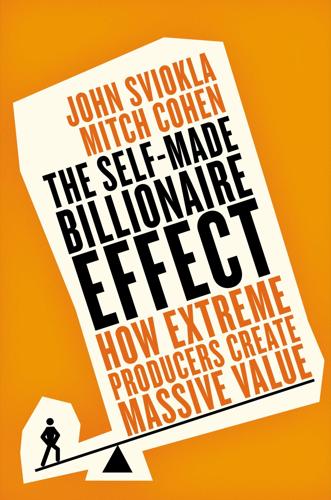
The Self-Made Billionaire Effect: How Extreme Producers Create Massive Value
by
John Sviokla
and
Mitch Cohen
Published 30 Dec 2014
Of course, he gave himself by far the biggest slug of the firm. Everybody left. What we’ve always tried to say is we want to flow through the actual economics. So if you’re creating value, we want to give you your share of what you actually created. Now you’re going to get your share—not in the future. Eat what you kill. If you do it, you get it. This deal is not just about money. This is about being partners and working together and sharing the same values.” Steyer expects his deal making—with his investors and with his people—will see Farallon into the next era of growth, which will involve more presence in environments where the rules of engagement are less defined.
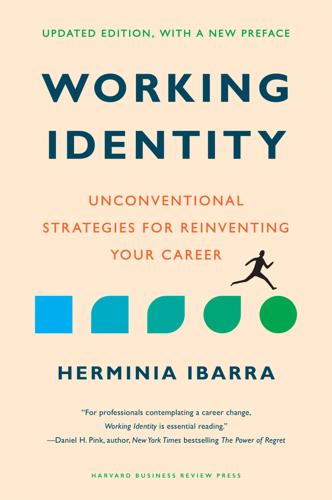
Working Identity, Updated Edition, With a New Preface: Unconventional Strategies for Reinventing Your Career
by
Herminia Ibarra
Published 17 Oct 2023
From a different vantage point, Pierre’s change might seem less radical than Lucy’s: At least for a period of three and a half years, he continued doing what he always did (writing, lecturing, and helping other people with their problems). A big community was waiting for him, ready to help, cushioning the leap. Lucy, on the other hand, was going it alone. She might have had a good network of fellow coaches and potential clients, but in freelance work, “You eat what you kill.” Given her self-described attitudes about money and climbing the corporate ladder, not to mention the agony she suffered in deciding what to do, the kind of change she made might seem to take more courage. Determining the magnitude of any work transition is highly subjective and hardly a relevant exercise.
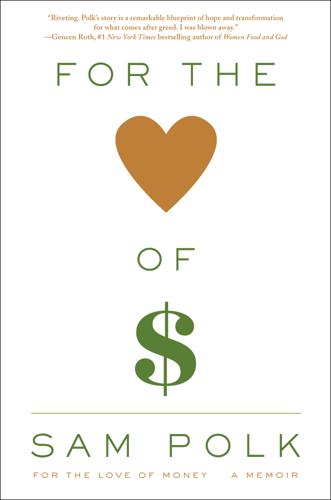
For the Love of Money: A Memoir
by
Sam Polk
Published 18 Jul 2016
It’s impossible to overstate how often Wall Street traders think about their bonuses. Those thoughts drive every trade, meeting, client dinner, and ball game. The carrot at the end of the stick. One of the reasons you think so much about it is because you don’t have much control over it. It’s a great paradox on Wall Street, where you supposedly “eat what you kill,” that your bonus is entirely at your boss’s discretion. The more trading profits you make, the bigger your bonus will likely be. But there are other variables—how profitable the firm is, seniority, what competitors are paying. You just don’t know. It was especially true for me that year.
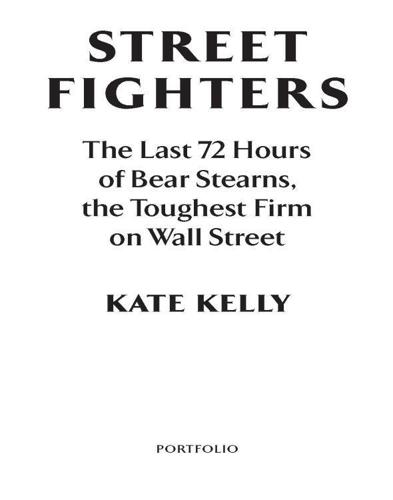
Street Fighters: The Last 72 Hours of Bear Stearns, the Toughest Firm on Wall Street
by
Kate Kelly
Published 14 Apr 2009
Meanwhile, Bear’s executives lay low in public. Most managers at Bear thought the system made perfect sense. They quietly kept to themselves, preserving the firm’s clubby mystique. Bear was like a place where you could get rich if you found a profitable niche for yourself—a culture often described as “eat what you kill.” It was the opposite of a place like Goldman, which was a far more “franchise”-driven culture, where the brand name superseded individuals in importance. And Bear employees liked it that way. Bear’s insular mentality was emphasized to new hires. In an annual lecture to the fixed-income division’s summer interns, for instance, Paul Friedman liked to talk about something he referred to as “C-1 risk.”
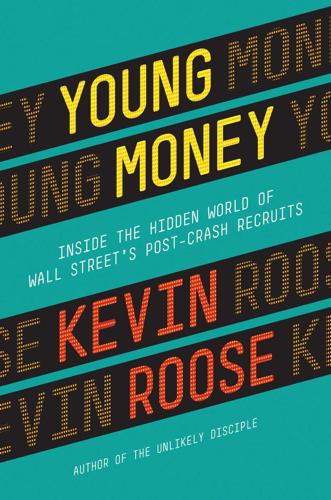
Young Money: Inside the Hidden World of Wall Street's Post-Crash Recruits
by
Kevin Roose
Published 18 Feb 2014
There were promises of real-world responsibility, vague hints of the immense workload that was expected of first-year analysts, and talk of “exit opps” after the two years were up. As usual, there was no mention of the money a first-year analyst stood to make—only generalities about the “generous” compensation package and “eat what you kill” pay philosophy. But there was something new, too—a set of questions about morality and ethics that hung in the air, just out of reach. No students asked the Goldman recruiters, flat-out, if working on Wall Street was immoral. (To do so would be the quickest way to talk yourself out of a job.)
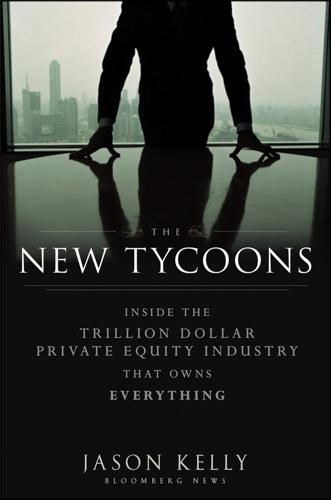
The New Tycoons: Inside the Trillion Dollar Private Equity Industry That Owns Everything
by
Jason Kelly
Published 10 Sep 2012
Part of making the case for teamwork was to remind each employee of the firm’s pay structure. Kravis described the experience at Bear Stearns as formative in a number of ways, including how the founders decided they would pay their employees. Like many Wall Street firms, Bear Stearns had an “eat what you kill” culture whereby your compensation was largely based on what business you brought in. Kravis described a culture where you locked your office or your desk when you went home at night so no one took clients or business ideas. The KKR founders decided that everyone would have a piece of the firm, however small.
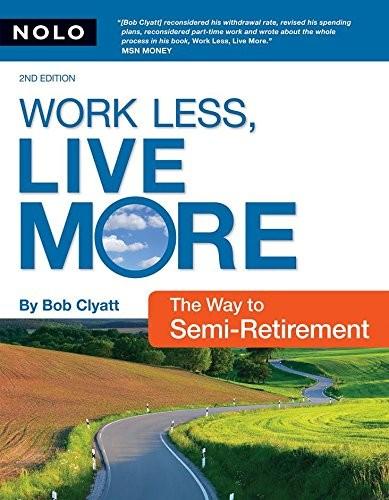
Work Less, Live More: The Way to Semi-Retirement
by
Robert Clyatt
Published 28 Sep 2007
For information on which form of business to use—sole proprietorship, limited liability company (LLC), or another type of corporation—see LLC or Corporation? How to Choose the Right Form for Your Business, by Anthony Mancuso (Nolo). Dealer, Agent, or Broker For the semi-retiree who has sales or business development skills, working as a dealer, agent, or broker can be the perfect match. Some call this the “Eat what you kill” approach to business. If you put together a chapter 6 | Do Anything You Want, But Do Something | 279 deal, you get paid; otherwise, nothing. Examples include working as a boutique investment banker, business broker, or real estate agent, or in commission-only business development. You use the relationship networks gained on your former job to find people who need investors, clients, business relationships, or contacts that will bring buyer and seller together.
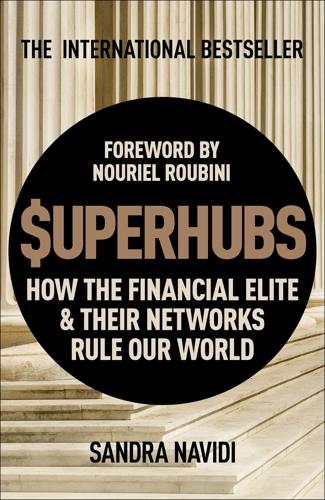
SUPERHUBS: How the Financial Elite and Their Networks Rule Our World
by
Sandra Navidi
Published 24 Jan 2017
However, those rewards require sacrifices and trade-offs, and the negative risks are dizzyingly high. The tough culture behind the sparkly facade of financial firms manifests itself in phrases popular in the financial world such as, “You are only as good as your last deal,” “What have you done for me lately?” and “You eat what you kill.” Recruiters give promising young professionals the star treatment and seduce them with prestigious and high-salaried job offers. Initially, the stimulating environment is invigorating, and the strong culture and camaraderie provide a sense of community, purpose, and importance. However, the unpredictability of staying on call 24/7—without any control or ability to set boundaries—eventually takes a toll.
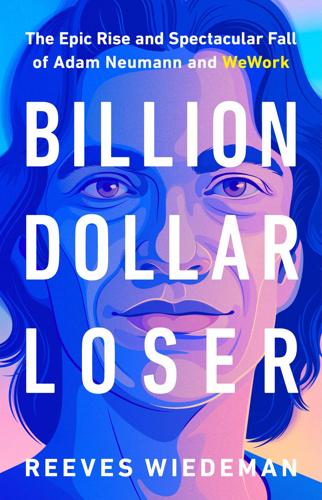
Billion Dollar Loser: The Epic Rise and Spectacular Fall of Adam Neumann and WeWork
by
Reeves Wiedeman
Published 19 Oct 2020
Having lived a disjointed life, marked by divorce, displacement, and a perpetual sense of feeling left out, he had finally discovered a community that filled some of those gaps only to find it lacking. The Neumanns spent just a few years at Nir Am, but when Adam began building WeWork, he said that he had learned some foundational lessons from his time there. WeWork would be “a capitalist kibbutz,” he said. “On the one hand, community. On the other hand, you eat what you kill.” * * * AFTER HIGH SCHOOL, Adam surprised his classmates by enrolling in the Israeli Naval Academy, an officer training program that typically requires at least six years of military service rather than the usual three. Adam’s fellow cadets remember him as a talented sailor who seemed to treat officer school as a game, bucking protocol to do whatever he wanted.
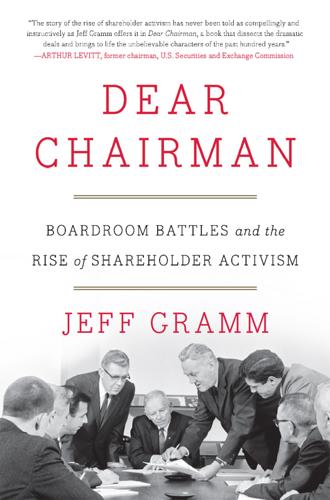
Dear Chairman: Boardroom Battles and the Rise of Shareholder Activism
by
Jeff Gramm
Published 23 Feb 2016
He earned almost $8 million in 2003 and just under $9 million in 2004. These are big numbers that Steel Partners used to highlight BKF’s “lack of accountability.”52 But Levin was one of two senior hedge fund portfolio managers who generated $51 million of fees in 2003 and almost $60 million the following year. The hedge fund industry is famous for its “eat what you kill” compensation structures. Henry’s pay for managing a $2.5 billion hedge fund was almost certainly lower than that of most of his industry peers. (Recall that Institutional Investor estimated that J. Carlo Cannell made $56 million in 2002.) BKF let its event-driven team keep two-thirds of its earnings.53 In the hedge fund world, this was actually a generous deal for BKF.
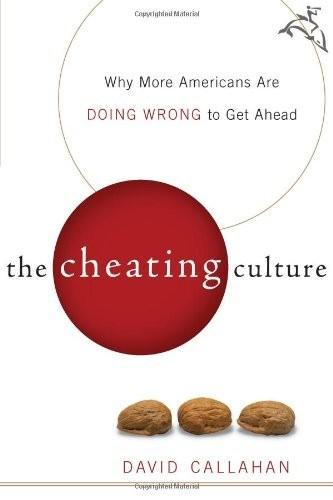
The Cheating Culture: Why More Americans Are Doing Wrong to Get Ahead
by
David Callahan
Published 1 Jan 2004
Starting salaries went up dramatically for associates during the 1980s and 1990s—soaring from $18,000 in 1977 to $85,000 in 2000 and then higher—but this money often purchased little in pricey urban areas and a terrible toll was exacted in the billablehours requirements. The lucky few lawyers who do make partner aren't immune to the stresses of the new bottom line. The old seniority system of equity sharing was rejected in the '80s at most firms in favor of an "eat-what-you-kill" approach. Partners who brought in new clients made big money; those who didn't were marginalized. At top law firms, partners began gunning for colleagues who weren't pulling their weight, and the unquestioned security that came with being partner turned into a thing of the past in many places.
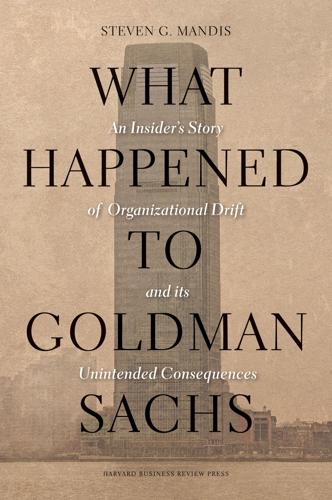
What Happened to Goldman Sachs: An Insider's Story of Organizational Drift and Its Unintended Consequences
by
Steven G. Mandis
Published 9 Sep 2013
Stewart, “Common Sense: At UBS, It’s the Culture That’s Rogue,” New York Times, September 24, 2011, www.nytimes.com/2011/09/24/business/global/at-ubs-its-the-culture-thats-rogue.html?pagewanted=all. 18. B. Groysberg and S. Snook, “Leadership Development at Goldman Sachs,” Case 9-406-002 (Boston: Harvard Business School, 2007). 19. I. Ross, “How Goldman Sachs Grew and Grew, Fortune, July 9, 1984, 158. 20. Milton C. Regan (Eat What You Kill: The Fall of a Wall Street Lawyer [Ann Arbor, MI: University of Michigan Press, 2004], 86–87) provides a concise account of the short-lived Water Street Corporate Recovery Fund. 21. C. D. Ellis, The Partnership—The Making of Goldman Sachs (New York: Penguin, 2008), 304. 22. “As a long-time employer of choice for elite undergraduates and MBAs, Goldman was able to select from a broad array of talented applicants for the traits it preferred” (see B.
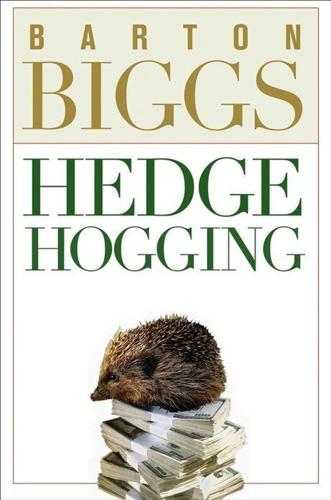
Hedgehogging
by
Barton Biggs
Published 3 Jan 2005
Now they are telling their clients that the best, safest place to invest is with smaller, investor-owned investment management boutiques or with hedge funds. Herb understands all this, and he is worried his compensation will fall. On the other hand, he doesn’t want to take the risk of leaving for a boutique or a hedge fund where you eat what you kill.You might say you don’t feel sorry for Herb since he is still outrageously overpaid compared to other sectors of the real economy, and you would be right. Compensation levels in the investment-management business are bound to decline.We were all blessed by the great bull market! Anyway, Herb sounded off at me, as though it was my fault, with a diatribe that went something like this: “Our profitability has been drained by layers and layers of senior management, compliance, proxy, product development, and human resource people.We even hired our own public relations team and a firm historian.
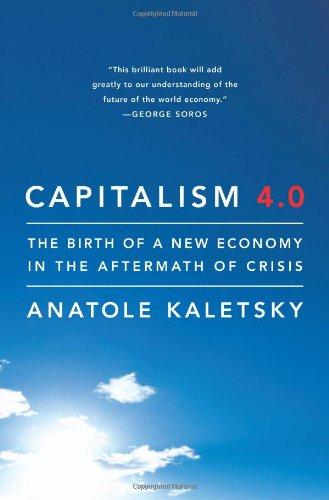
Capitalism 4.0: The Birth of a New Economy in the Aftermath of Crisis
by
Anatole Kaletsky
Published 22 Jun 2010
Politicians forced to support private banks with public money could no longer deny that government safety nets are a natural and necessary feature of social reality, whether in financial markets, or fire fighting, or the provision of defibrillators in public places.5 Banks driven to the brink of failure could no longer pretend that their reckless disregard for risk and “eat what you kill” bonus culture was purely a private matter between their shareholders, directors, and employees. Investors ruined by relying on theories of efficient and rational financial markets could no longer pretend that market-based financial regulations and accounting rules were always more reliable than political and regulatory judgments.6 The upshot was that the market fundamentalist opposition between government and private enterprise could no longer be seriously maintained.
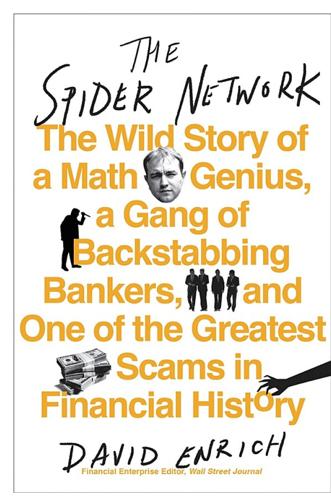
The Spider Network: The Wild Story of a Math Genius, a Gang of Backstabbing Bankers, and One of the Greatest Scams in Financial History
by
David Enrich
Published 21 Mar 2017
When Hayes got his mind set on something, he wouldn’t let it go. When Tradition was planning to dismiss a broker he liked, Hayes intervened, proclaiming that if the broker wasn’t given a generous exit package, Hayes would sever his relationship with Tradition’s Tokyo unit. The threat worked. In the eat-what-you-kill finance industry, it was a rare example of someone using his own leverage to benefit someone else. The broker’s mistreatment offended Hayes’s sense of justice: There was a difference between right and wrong, and this was wrong, and Hayes had the power to make it right. But while Hayes was loyal to those he considered to be his friends, others were terrified of his propensity for unpredictable blowups and retribution.
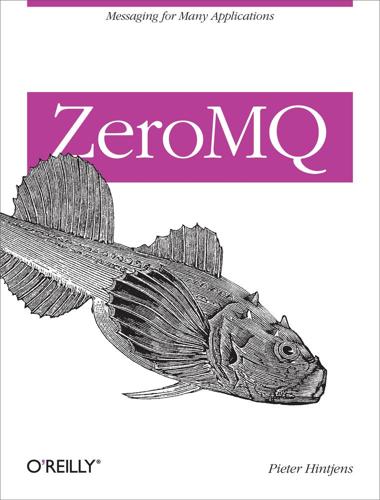
ZeroMQ
by
Pieter Hintjens
Published 12 Mar 2013
Infinite Property One of the saddest myths of the knowledge business is that ideas are a sensible form of property. It’s medieval nonsense that should have been junked along with slavery, but sadly it’s still making too many powerful people too much money. Ideas are cheap. What does work sensibly as property is the hard work we do in building a market. “You eat what you kill” is the right model for encouraging people to work hard. Whether it’s moral authority over a project, money from consulting, or the sale of a trademark to some large, rich firm: if you make it, you own it. But what you really own is “footfall,” participants in your project, which ultimately defines your power.
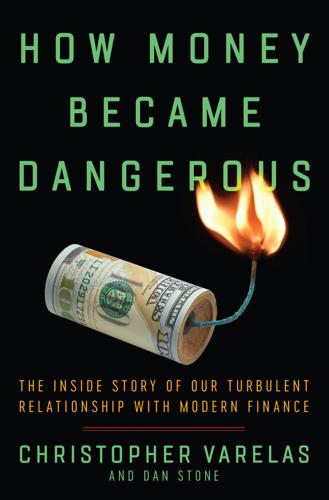
How Money Became Dangerous
by
Christopher Varelas
Published 15 Oct 2019
If you wanted to buy a fancy car, for example, and you went to Billy Salomon and said, ‘Can I have some money from my capital account? I really want to buy this car,’ he’d laugh at you. ‘First,’ he’d say, ‘we’re keeping the money in the partnership. And second, we don’t want our partners living like that.’” But the transition to a public corporation gave Meriwether the opportunity to instill an “eat-what-you-kill” bonus structure, as he fiercely protected his crew of mathematicians and former Ivy League professors who became his arbitrage specialists. Before Paul Mozer was moved to the government securities desk, he had been part of Meriwether’s team, so while the proprietary traders’ personal bank accounts were bursting at the seams over the decade, Mozer began to feel as if he’d been cast out and left behind.
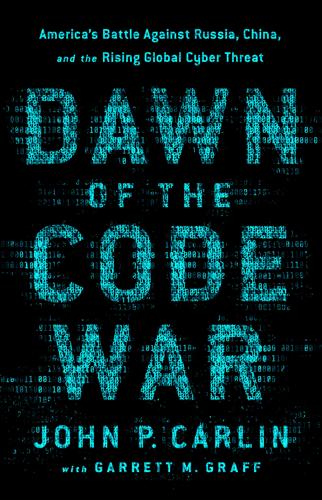
Dawn of the Code War: America's Battle Against Russia, China, and the Rising Global Cyber Threat
by
John P. Carlin
and
Garrett M. Graff
Published 15 Oct 2018
Online, it cared about defending its leader’s reputation and about making—stealing—money. Unlike, say, the US budget process, where Congress carefully and specifically allocates money to various agencies, North Korea, starved for hard currency, has long let its military and intelligence agencies pursue an “eat what you kill” strategy. In North Korea, you can spend what you steal or earn overseas, which is why the country has traditionally been one of the world’s leading drivers of counterfeit currency. China was noisy online—seemingly pillaging without concern for who might notice—but careful never to cross into a destructive attack and deeply embarrassed when their activities were made public by another government.
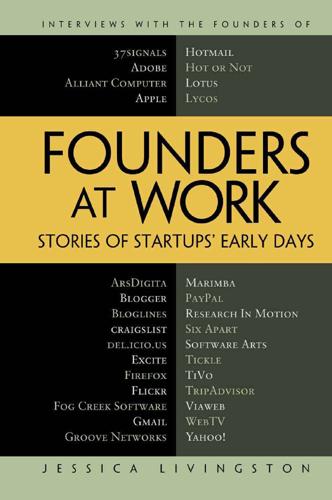
Founders at Work: Stories of Startups' Early Days
by
Jessica Livingston
Published 14 Aug 2008
Without even realizing what a risk they were taking, the new management said, “Programmers are only good at programming. They shouldn’t do anything but program. So we’ll hire salespeople to sell, and not have programmers try to sit with the customer.” At the time, Anderson Consulting (now Accenture) didn’t have any salespeople. They always had the people who were executing the project sell it. “You eat what you kill” was the phrase at Accenture. You don’t have a salesperson go out and tell the customer, “We can do this,” making promises and then handing it off to a programmer. So they ignored the wisdom of Accenture and the history that we had of profitability, and they said, “We’ll hire professional salespeople to sell.
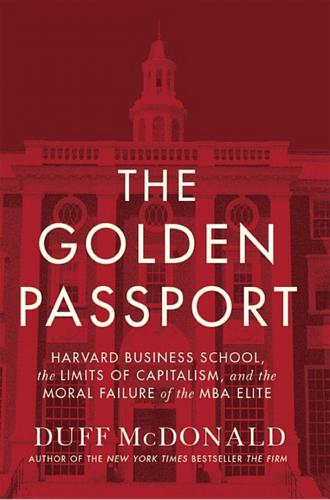
The Golden Passport: Harvard Business School, the Limits of Capitalism, and the Moral Failure of the MBA Elite
by
Duff McDonald
Published 24 Apr 2017
Fouraker was a master of raising money, but beyond that, he was the living, breathing fruition of any anti-HBS Harvard faculty member’s worst fears: a proudly anti-intellectual corporate glad-hander who was selling Harvard’s good name out the side door for pennies on the dollar. Wealthy businessmen the world over were attending sessions that could be as short as one week, paying corporate big bucks in exchange for a Harvard degree. Harvard’s president couldn’t even get his hands on those monies, either, as Harvard’s individual schools operate on an eat-what-you-kill basis, keeping any and all monies raised to themselves. That makes it all the more ironic that the older, supposedly more business-savvy dean was dispatched by Harvard’s president in what amounts to nothing less than a classic case study of modern organizational jujitsu. Bok’s 1978 annual report was mostly given over to a finely grained analysis of the Business School.